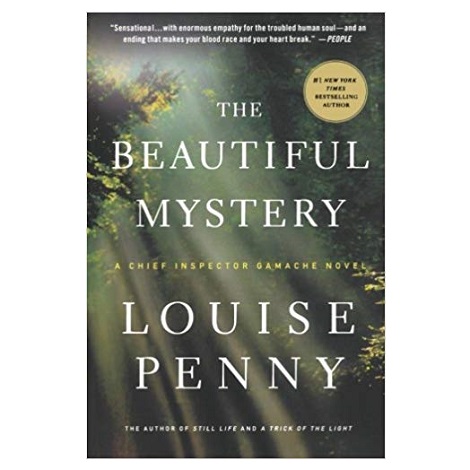

Readers come to Three Pines for the murders and the quirky villagers – Ruth, the foul-mouthed poet-sage and her duck, Rosa Myrna, the retired therapist turned bookstore owner – but stay for the celebration of kindness and friendship, the plumbing of the nature of morality, and the musings on the creation of art and its purpose.Ībout a year ago, I happened upon this statement about the Monitor in the Harvard Business Review – under the charming heading of “do things that don’t interest you”: Penny – whose books wind up on Best Novels of the Year lists, not “just” Best Mysteries – is a one-woman argument against literary snobbery. The knock on genre writing, as people who love to really read know, has always been unfairly dismissive. (“The Long Way Home” in 2014 was less satisfying, but still well-plotted.) James, operates at a different metabolism than many expect when it comes to mysteries. Then came “A Great Reckoning” and now “Glass Houses” and it’s become plain that that novel simply marked a new level for the award-winning Penny, who along with writers such as Tana French and the late P.D. The novel is told through the testimony of Armand Gamache, now director of the Sûreté, being treated as a hostile witness in a murder trial.Īfter 2013’s exquisitely crafted “How the Light Gets In,” it was hard to see how Chief Inspector Gamache could do anything but ride into the sunset. No one is doing any whistling, but Louise Penny lets conscience be the guide in her top-notch new mystery, Glass Houses.Ī masked man in black shows up at a Halloween party in the small Canadian village of Three Pines and then doesn’t leave – standing silently on the village green, breaking no laws but shattering the townsfolk’s peace. But that can be true only when we give up. It’s a public safety issue,” the nonpartisan coalition said.So often, the product of entrenched politics is a loss of hope and agency. To this end, the Monitor has put together a collection of stories to show that ways forward are possible and that problems remain entrenched only so long as we turn away or view the other side as the enemy. The special edition went out to all our subscribers this morning.In Nashville, Tennessee, last month, more than 5,000 people linked arms, forming a chain 3 miles long that ended at the statehouse. But it can keep us awake. Falling into the indolence of despair must never be an option.

It does not need to tell us what to think. But here is where journalism can play a vital role.
Places in a long way home by louise penny series#
Why are guns seen as different?This past weekend, I felt that profound sense of impotence after the latest in America’s series of mass shootings. Although mass shootings are not unique to the United States, their scope and frequency are. We know deaths would rise if we loosened seat-belt laws or car safety regulations. Yet it is inescapable that mass shootings, while the result of many variables, are inextricably connected to America’s gun laws. This can be accomplished in countless ways that defy partisan lines. With devastating frequency, mass shootings tragically underscore this fact. The Monitor does not exist to advocate for any particular policy, but for the expansion of universal values such as compassion, freedom, responsibility, or honesty, to name a few. So much of American politics today promotes a profound sense of impotence – the inability to move entrenched forces, even a degree.


 0 kommentar(er)
0 kommentar(er)
